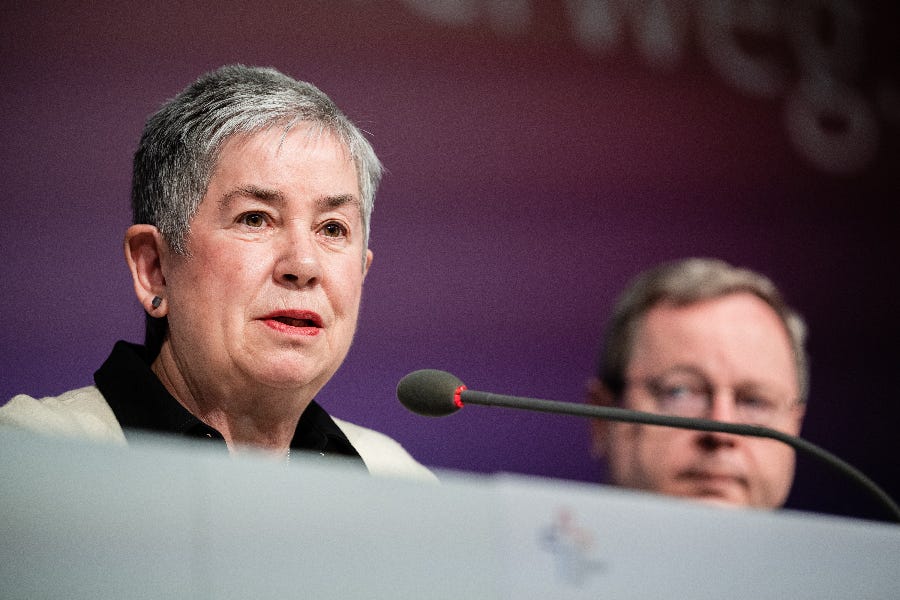After Germany’s ‘synodal way,’ a power struggle
With the German 'synodal path' over, the lay ZdK says the battle for the Church's future isn't finished.
The final assembly of Germany’s synodal way ended in March with the overwhelming endorsement of all but one resolution proposed by its organizers.
But the synodal way’s co-president Irme Stetter-Karp is not celebrating victory.

